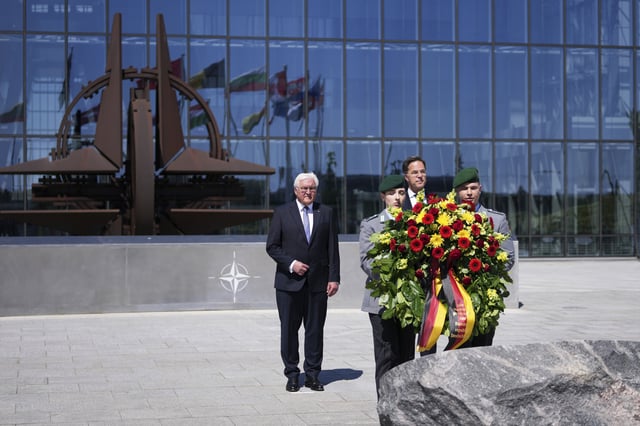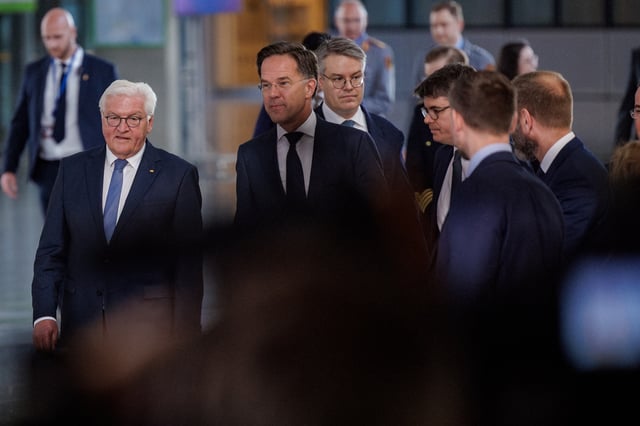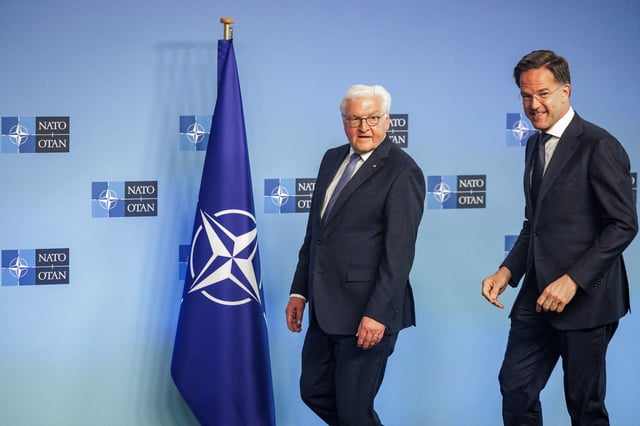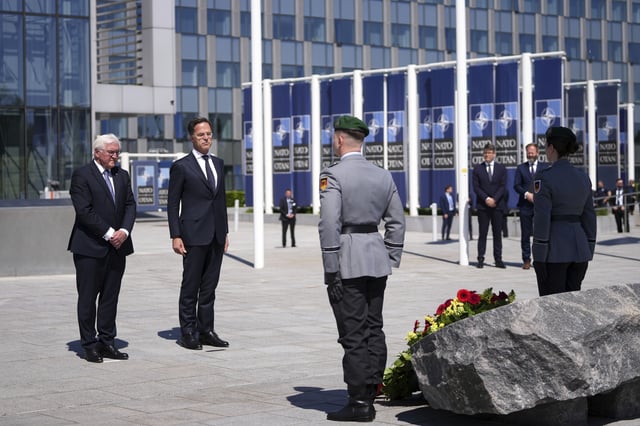Overview
- German President Frank-Walter Steinmeier announced Germany's commitment to significantly bolster its military and infrastructure during a NATO ceremony in Brussels.
- Germany plans to establish a 500-billion-euro infrastructure fund and loosen borrowing caps to support defense investment, marking a departure from its traditional fiscal restraint.
- Steinmeier emphasized Germany's role in addressing security demands heightened by Russia's ongoing war in Ukraine and U.S. calls for Europe to assume greater defense responsibilities.
- The outgoing German government had already initiated a 100-billion-euro fund to modernize its military, helping meet NATO's 2% GDP defense spending target.
- This shift comes as NATO allies navigate uncertainty over U.S. defense priorities, with no formal announcements yet on potential U.S. troop withdrawals from Europe.



